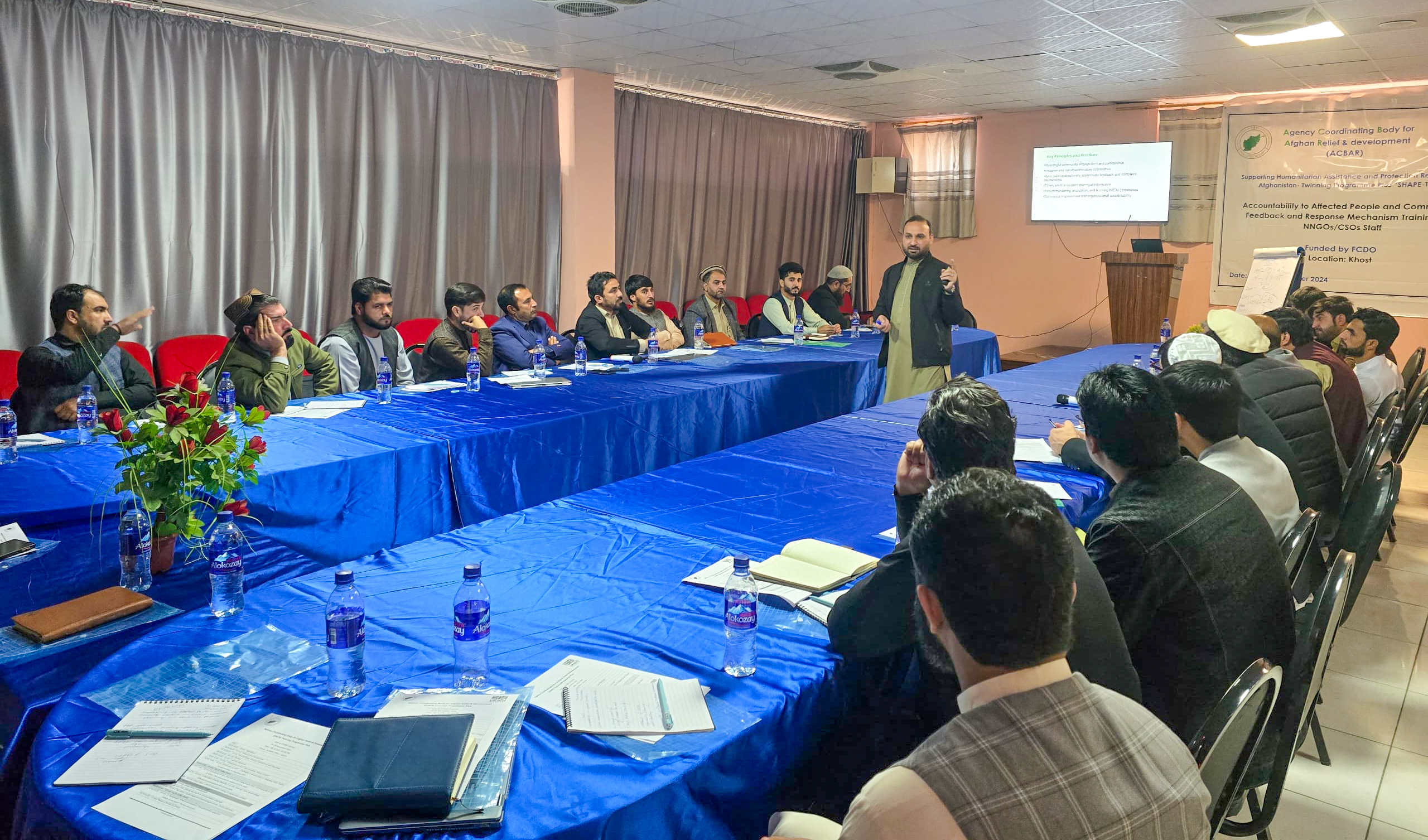
Accountability to Affected People (AAP) Training in Khost
Accountability to Affected People (AAP) is a critical principle in humanitarian work, ensuring that affected communities are actively involved in decision-making, informed about aid programs, and able to assess the effectiveness of the assistance they receive. Humanitarian agencies, NGOs, and UN organizations must be transparent, responsive, and accountable to the people they serve. In Afghanistan, where communities frequently experience crises, it is especially important to ensure that the voices of the affected populations inform humanitarian decision-making, which leads to more relevant and efficient responses.
The Accountability to Affected Population Working Group, under ACBAR, plays a very important role in the humanitarian response to Afghanistan. Among its roles is providing reviews of proposals for the AHF, ensuring that all submissions from various humanitarian partners comply with the established accountability indicators. The review ensures alignment of humanitarian projects with AAP principles of transparency, community engagement, and responsiveness to the needs of affected populations. ACBAR also works toward humanitarian effectiveness in Afghanistan with programs such as "Supporting Humanitarian Assistance and Protection Response in Afghanistan-Twinning Program Plus," or SHAPE-TPP, which aims to foster the agenda for localization and enhance the capacities of National NGOs, including those that are women-led.
ACBAR is actively working to build the capacity of NNGOs and Civil Society Organizations (CSOs) in Afghanistan to integrate AAP principles into their work. The training focuses on developing AAP policies, creating effective Community Feedback and Response Mechanisms (CFRM), and improving communication between humanitarian organizations and the communities they serve. This training has empowered 250 staff from I/NNGOs with the knowledge to effectively engage with the communities, ensure information is shared transparently, and design feedback mechanisms through which communities are able to express their views and be heard on the aid provided. In this regard, it has been vital to building trust, enhancing the delivery of services, and consolidating humanitarian response generally.
In addition, ACBAR's training programs put a lot of emphasis on the monitoring of community perceptions to measure the effectiveness of humanitarian assistance. These insights are gathered through a set of AAP and PSEA indicators outlined in the HNRP for 2024, which allows organizations to understand community needs and adapt responses. These programs, by taking a rights-based approach, ensure that communities are not only informed but also empowered to make decisions about their recovery and actively participate in the humanitarian process. Post-training evaluations show organizations' commitment to AAP, CFRM, and PSEA, which, along with AHF proposal reviews, will improve humanitarian interventions in Afghanistan based on community needs.
In continuation of the mentioned topics above, ACBAR organized a two-day workshop on Accountability to Affected People (AAP) and Community Engagement in Khost Province, On November 24-25, 2024. The event brought together approximately 31 participants from NGOs, INGOs, and CSOs to exchange ideas and insights on this vital, cross-cutting topic. The workshop aimed to enhance the coordination of community engagement efforts across the humanitarian response and promote awareness of collaborative AAP approaches. Additionally, it reinforced the humanitarian community's commitment to prioritizing AAP within the relief distribution process, ensuring better outcomes for the people of Afghanistan.

